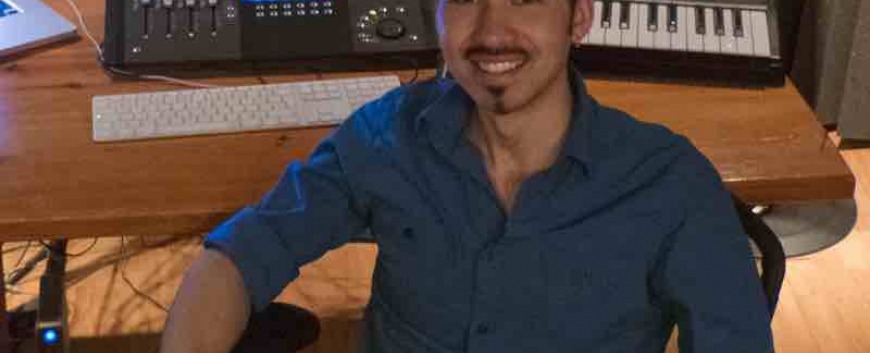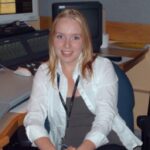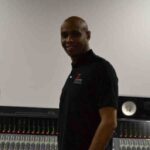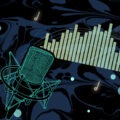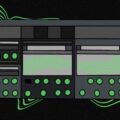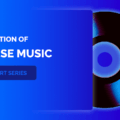Paul Col was born and raised in Massachusetts. He came to Canada to study biology at McGill University. Paul soon realized he wanted to work in the sound and music recording industry, surrounded by talented and motivated people. In this interview, Paul sheds some light on the road he’s travelled so far, and where he hopes that road will lead him. During his time at university, Paul’s passion for music grew and he began playing bass for a few bands in Montreal. The next step was naturally to jump into home recording with the bands he was working with. Paul quickly recognized the steep learning curve associated with sound and music recording. That’s when he decided to take a more strategic approach to pursuing his dreams. That decision has helped Paul start his career as a post-production sound engineer.
Can you tell us a little bit about your background?
“I came to Montreal in 2006 to study biology at McGill University. After graduating in 2010, I spent a year recording an album with my band. After teaching myself for a year and struggling to make my recordings sound comparable to the albums that inspired me, I decided to seek professional training. That’s when I decided to apply to RAC.”
So why did you choose to study in Canada?
“University tuition is a fraction of the price here, and all the programs that interested me were offered in Montreal. It worked out really well for me, but I didn’t expect in any way to end up in audio, but here I am! “
Why did you choose to apply to RAC?
“After researching all the available programs in Montreal, I decided to apply to RAC after speaking to a few alumni from the various sound engineering schools here in Montreal. The courses offered at RAC covered multiple dimensions of the audio field, rather than focusing strictly on music, which for me was hugely important in discovering my passion for post-production. I was also drawn to the 50/50 split between theory and practical application.”
How was your experience as a student at RAC?
“The teachers were fantastic, and as they are all active audio professionals outside of RAC they were able to offer us a first hand impression of what sort of careers were out there, and more importantly, what sort of work ethic and dedication is required to succeed in this field. “ One of the most important responsibilities of a college is to expose students to a wide range of creative opportunities and professional activities within the sound and music recording industry. It’s not uncommon for a student to be unfamiliar with particular segment of the sound and music recording industry. Post-production for film is one such example. What happens during the time a student is at RAC is often very inspiring. Students discover an exciting career option they didn’t know much about. In Paul’s case, it has turned out to be a wonderful career altering experience. It’s always exciting to see this type of discovery shape a student’s professional and creative life.
Can you share a particular experience that stood out during your time at RAC?
“Working on our post-production final project was probably the biggest eye opener for me. We went to a mechanic’s garage and recorded ourselves smashing car windows, as well as all these great sounds of machinery and hydraulics and acetylene blowtorches. It was great. We also recorded ADR (automated dialogue replacement) and foley. We then went back to RAC’s studios and fitted it all to image. After that experience, I had made up my mind that I was going into post-production.“
How did your studies at RAC prepare you for the job you are doing now?
“It gave me the toolset and technical knowledge to enter the field. Like any profession, the majority of what you learn is through experience and day to day challenges, but having developed a solid technical understanding of audio and acoustics during my time at RAC has been a huge asset so far, especially when facing new and difficult scenarios.“
What kind of projects did you start out with at the beginning of your career?
“I started out working at a studio/venue in Laval. I was doing live sound for concerts, and recording multi-tracks straight off the mixing console. It was lots of fun, but I much preferred the post-production elements of the job like mixing, editing, and processing.” Paul’s next step was to contact people in the post-production industry in Montreal. One of the people he contacted put him in touch with Studio Sonomar. Paul was hired for a post-production project the studio was working on. Paul feels that due to his education at RAC, he had an advantage over other candidates that were being considered for the project.
Can you describe your current job and how it came about?
“Currently I’m working as a dialogue editor and a junior sound effects editor. I met up with a supervising sound editor from Montreal, Martin Pinsonnault, and began working with him on his films a few months back. I got in touch with him through his friend Michel, who is an active sound designer from Montreal who directed me his way.” It was pretty clear that my lack of experience was a factor. Although I had a firm understanding of audio concepts and fundaments, I was unaware of what it meant to work as a part of an audio post-production team, which is really important. In that regard, I think that my willingness to learn and my interest in audio played a large part in my hiring, as well as timing, and of course luck.”
What is your role at the studio?
“My role really depends on the film, the budget, and the circumstantial requirements. Right now we are beginning work on 3 films simultaneously, so my role will vary between sound effects editing, conforming location sounds, foley assisting, mix prep, really doing whatever needs to be done so that the films continue to progress as smoothly as possible.”
How complex is the set up of your work environment?
“Pretty simple really; everything ultimately ends up in Pro Tools and plays back over monitors, but there are a lot of little tools and programs that we use to keep the studio workflow streamlined. The list continues to grow with every project, because there are so many ways that you can make the audio workflow more efficient. So even though the workflow is getting more complicated in terms of the number of software applications and tools we use, the work itself is actually getting simpler as a result.”
How is the post-production scene in Montreal?
“It’s great. Everyone I’ve met so far has been really inspirational in both their passion for and knowledge of the audio field. Montreal is a great place to work in post-production. Quebec has its own film industry and there are tons of gaming companies here as well – though there is certainly a fair bit of competition. There are a ton of really talented people here who are all doing fantastic work. In that way, in order to achieve anything you have to work hard and continually improve your skill-set.” When asked to list his personal goals and ambitions, Paul eloquently replied: “Being better, and knowing more than I did yesterday.”
Do you have any suggestions for people interested in starting a career in your field?
“Work fiercely towards what you want, and ask for feedback every chance you get.” When speaking with Paul , it’s obvious how passionate he is about post-production audio recording, and how important it is for him to be surrounded by talented and ambitious people. When asked if anything particularly influential occurred during his time at RAC, without missing a beat (or frame), Paul replied: “Meeting like-minded people who share a passion for audio”
